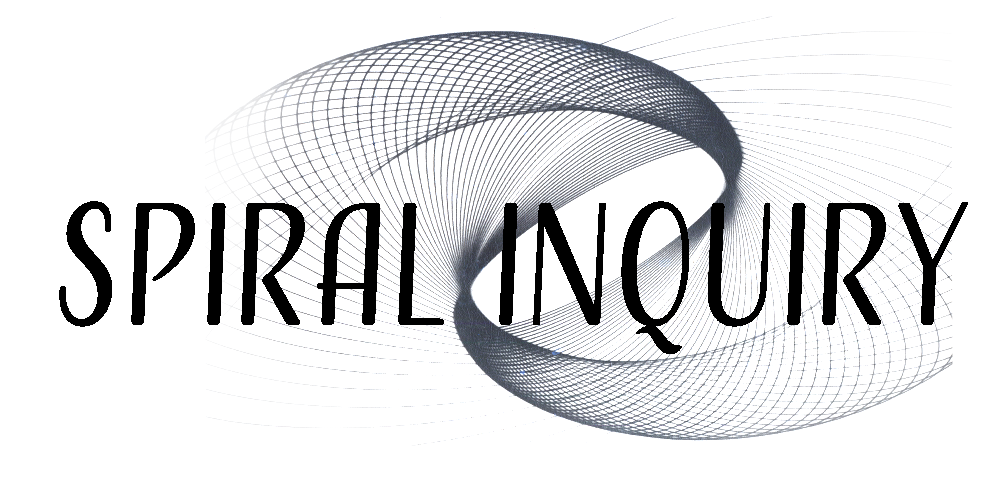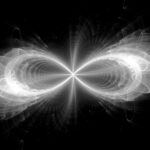Some argue that everything, including evolution and life, is driven by randomness. They are missing the big picture.
Random Talk
There are a variety of voices that claim that life is more random than we think.[1] One line of reasoning is that humans have been programmed through natural selection to see patterns, because a sensitivity to patterns, such as the spots of a predator hidden in the grass, was beneficial to our paleolithic ancestors. Moreover, the consequences of making mistakes in pattern identification are asymetric – far better to see too many patterns than not to see the one that is going to kill you.
This sensitivity to patterns is also largely pre-conscious, both for efficiency and for speed. Cognitive processing is relatively slow, so the heuristics of pattern recognition are built into the instinctive neural systems, allowing for faster reaction and reduced computational energy. As a result, we are not consciously aware of our pattern recognition tendancies. We do become consciously aware of the biochemical cascade that follows the pre-conscious identification of a threat. Our rational mind becomes aware of the threat after the body has reacted. In a sense, our body tells our mind there is a pattern, which pre-disposes us to believe the pattern to which the body is reacting. While further detailed observations may later disprove what the body was responding to, it is clear that we are biased in favor of believing a pattern exists.
As a result, the claim goes, we tend to see patterns in random events. In normal life, we are going to experience coincidences, some of them uncanny, like bumping into an old friend in an unusual location. We have a tendency to feel that some causal influence was at work – some hidden, even mystical, pattern. But, according to the skeptic, that is an illusion created by our “pattern detection” programming. This illusion applies, it is claimed, to things small and grand, including the belief of many in an infinite God.
The second claim we hear is more straightforward. Simply put, the claim is that everything is random, from the decohering of quantum particles, to the genetic mutations that push evolution along, to the very operations of our universe and the daily events of our lives. At the extreme, there are many who argue that when a quantum event occurs, with multiple possible outcomes, the universe splits. Each possibility becomes instantiated in an alternate universe. All the possible outcomes are realized in the multiverse. As an observer, we only see one of those alternate universes. We just happen to be, by pure chance, in the quantum universe that we are in, following one apparent life trajectory rather than another. This is the ultimate random idea!
Cause and Purpose
I’d like to offer three concerns with these claims. First, it is often quite difficult, if not impossible, to know whether there is, or is not, a causal connection, or a pattern, between two events. The events could be totally independent and random, or there could be some hidden linkage at work, one that we are simply not yet aware of. My 11-year old grandson from Colorado was visiting Boston a few weeks ago with his family, and was tackled by two of his best friends from Colorado at the Fanueil Hall market place. How random was that! Well, it turns out they were also visiting family in the area, and both, coincidentally, were sightseeing together in Boston on the same sunny weekday. It was easy for the Moms to set up the surprise meeting by text. The nuances of causal connections, and whether they exist or not, can be subtle, and hidden.
A second concern is that skepticism about the existence of a possible pattern or causal chain can itself create a “self-fulfilling” prediction. Obscure causal relationships are difficult to observe, so it is easy to doubt that one exists. But the harder the skepticism, the more likely that you will miss or discount any subtle patterns and causal factors that really do exist. One example is the tendency for western medicine to dismiss so-called folk remedies on the grounds that they had not been validated through scientific studies. Many of these remedies had never actually been scientifically studied, and they had evolved as cultural practices over thousands of years because of the benefits they provided. Science has begun to catch up with the subtle benefits of some of those practices, including meditation, massage, acupuncture, herbal medicine, and even prayer. It pays to be cautious in making skeptical conclusions.
The problem of puzzling connections is a particularly crucial issue in physics, where the phenomenon of quantum paired particles seems to suggest that information can travel faster than the speed of light, or that causation can flow backwards in time, or that there are hidden variables we cannot observe. The fact that the fundamental physical constants that apply in our universe are precisely fine-tuned to enable the chemistry that enables life, is also a mystery. To the skeptics, it seems more comfortable to hold fast to the idea that everything is random and postulate a totally random infinite multiverse, than to accept the idea that there may be causal factors (potentially even a divine consciousness) that we do not yet understand. In my essay The How and The Why of Intention and Emergence I give examples of features of the universe that are consistent with the existence of subtle causal factors. My claim is that the universe (this one – the only one we can observe and the one we live in) shows signs that it is evolving consistently in the direction of greater order, greater information, greater interconnectedness and greater diversity. Why this might be the case is speculative, but the speculation offer an affirmative counterpoint to the randomness of the multiverse speculation.
Thirdly, the arguments in favor of randomness miss the fact that randomness is often a tool that is used purposefully. In this case, it is incorrect to claim that the system is behaving randomly. Computer programmers often make use of random number generators for cryptographic and other purposes. So the strings of numbers may be random (actually it is impossible to generate perfectly random numbers – they just get “close enough”), but they are being used intentionally. The same is true of apparent random behaviors exhibited by many biological organisms and biochemical processes. When searching unknown terrain, following a random pattern is an efficient search strategy. So random-seeming behaviors can actually be quite purposeful.
Turning Lemons to Lemonade
These concerns are good reasons to at least suspend judgement on the question of whether everything is random or not. Our empirical observation skills and theoretical models do not provide a strong enough justification for concluding that randomness rules.
But there is also a different way of thinking about this entirely. Arguably, there are many, many occasions when we experience random events. Things often can, and do, happen purely coincidentally. But, if you are scanning for patterns, these coincidences may become opportunities to make beneficial connections. By taking advantage of random events, people can make their own good luck. Studies have shown that being optimistic and believing you are lucky can attune you to scanning your environment for opportunities and give you the confidence to seize them, significantly increasing the probability that you will benefit from those coincidental events. Those who believe they are not lucky tend to be less observant and less confident and thus miss those opportunities. That is the metaphor of the 4-leaf clover. Most people do not find them because they simply do not look hard enough. But believing you are lucky seems to make you work harder to make that belief come true.
Random events that we capitalize on become meaningful in hindsight — and the ability to make meaning can hardly be called random. There is a synergistic relationship between an astute observer and the random events they encounter. Such events provide a rich and fertile environment for creating beneficial outcomes.
The placebo effect is another wonderful example of the power of positive thinking. There is no known pharmacological benefit from placebos — yet research confirms that if you believe in the placebo you are, in many cases, going to benefit physiologically. It’s been reported that the placebo effect even works in cases where the patient is told the pill is a placebo.
Be a cautious believer, not a skeptic
I would argue that at the theoretical level, a firm belief in the randomness of the phycisal world and life is unwarranted. Rather than turning your skepticism toward claims of causation, meaning and purpose, I suggest being skeptical of the claims that everything is random. Moreover, for reasons outlined in The How and The Why of Intention and Emergence I believe there is good evidence (but not proof) that life, and the universe, is directed towards a goal of thriving.
At the pragmatic level, the advice is more direct. Keep an eye out for potentially fortuitous patterns. Lean towards believing in placebos and your own good luck.
As the fortune cookie says: “Good things will come your way.”
[1] One example is the book The Drunkard’s Walk – How Randomness Rules our Lives (2009), by the eminent physicist Leonard Mlodinow.
For more on Order and Randomness:
















